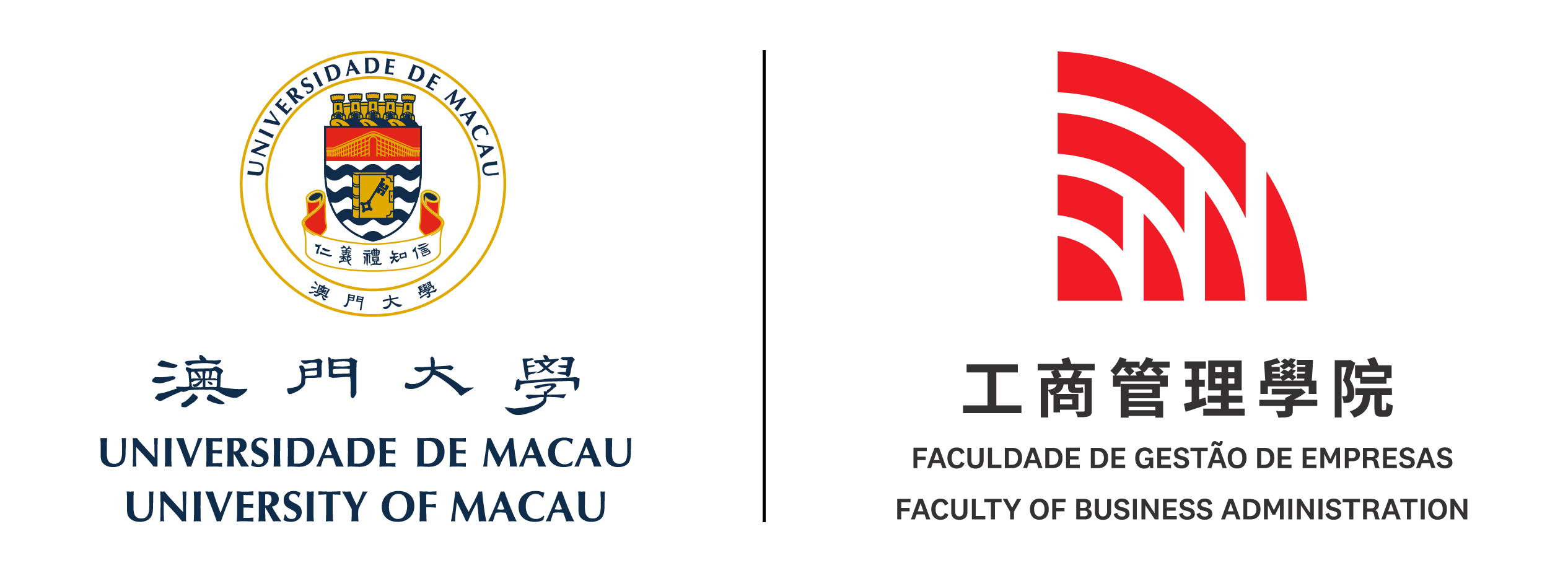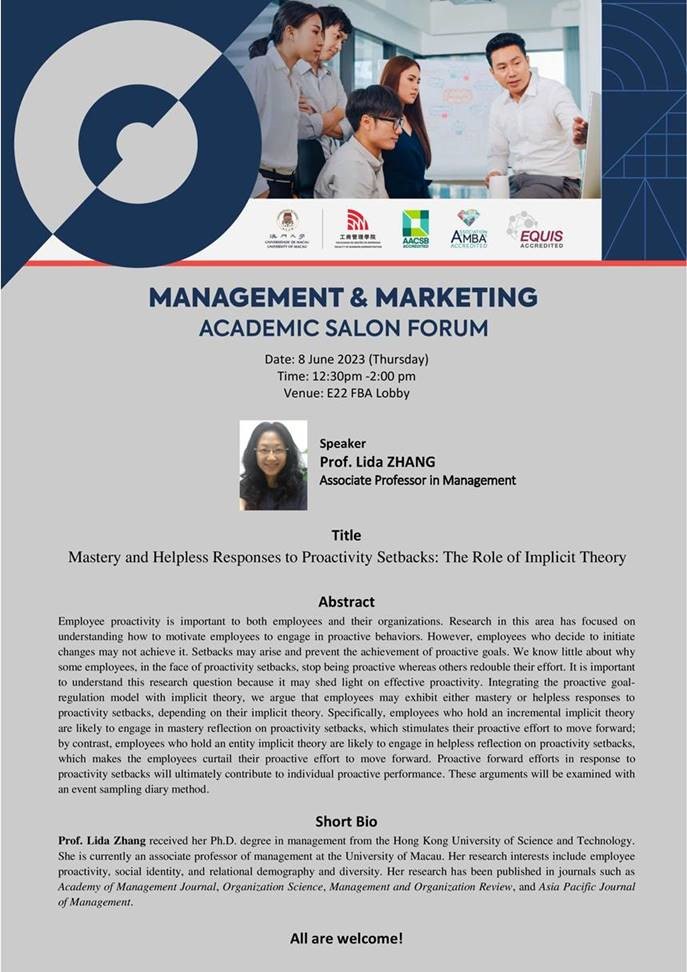Mastery and Helpless Responses to Proactivity Setbacks: The Role of Implicit Theory
Prof. Lida ZHANG
Associate Professor in Management
Date: 8 June 2023 (Thursday)
Time: 12:30pm -2:00 pm
Venue: E22 FBA Lobby
Abstract
Employee proactivity is important to both employees and their organizations. Research in this area has focused on understanding how to motivate employees to engage in proactive behaviors. However, employees who decide to initiate changes may not achieve it. Setbacks may arise and prevent the achievement of proactive goals. We know little about why some employees, in the face of proactivity setbacks, stop being proactive whereas others redouble their effort. It is important to understand this research question because it may shed light on effective proactivity. Integrating the proactive goal-regulation model with implicit theory, we argue that employees may exhibit either mastery or helpless responses to proactivity setbacks, depending on their implicit theory. Specifically, employees who hold an incremental implicit theory are likely to engage in mastery reflection on proactivity setbacks, which stimulates their proactive effort to move forward; by contrast, employees who hold an entity implicit theory are likely to engage in helpless reflection on proactivity setbacks, which makes the employees curtail their proactive effort to move forward. Proactive forward efforts in response to proactivity setbacks will ultimately contribute to individual proactive performance. These arguments will be examined with an event sampling diary method.
Short Bio
Prof. Lida Zhang received her Ph.D. degree in management from the Hong Kong University of Science and Technology. She is currently an associate professor of management at the University of Macau. Her research interests include employee proactivity, social identity, and relational demography and diversity. Her research has been published in journals such as Academy of Management Journal, Organization Science, Management and Organization Review, and Asia Pacific Journal of Management.
All are welcome!


